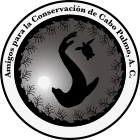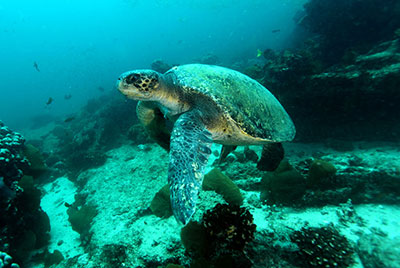
Cabo Pulmo National Park
Protecting a National Treasure
Cabo Pulmo is a national marine park and coastal community located near the south-eastern tip of Mexico’s Baja California Peninsula. The reefs at Cabo Pulmo National Park are estimated to be 20,000 years old, and have long been considered a treasure of the Baja California Peninsula.

Today, after nearly 22 years of protection, every native species of fish has returned to Cabo Pulmo’s reefs, from small herbivores to mid-sized carnivores, to top predators. Predatory sharks, massive rays, humpback whales, sea turtles and ospreys are among the many species that rely on Cabo Pulmo for feeding, habitat and long-term survival.
Amigos para la Conservation de Cabo Pulmo (ACCP) or, “Friends for the Conservation of Cabo Pulmo”, is a local community non-profit organization founded in 2003 to preserve the Cabo Pulmo National Park through conservation, community development, and communication strategies. ACCP’s program activities include water quality monitoring, environmental education, managing the local recycling program, reef restoration and monitoring sea turtles, including five of the world’s seven endangered species who use the PNCP reef as a refuge.
The protected status of PNCP, coupled with ACCP’s efforts to empower the community to enforce and protect the reserve, have been wildly successful; fishing catches just outside the park have increased, and the sustainable approach to tourism in the region is generating higher-paying jobs for the community. Residents continue to enforce the park regulations, clean the beaches, and protect important species. However, as tourism in the region continues to grow, there are new threats and impacts on the reefs and marine species, as well as the people who govern and live in these communities.
Learn more about this group on their website cabopulmoamigos.org